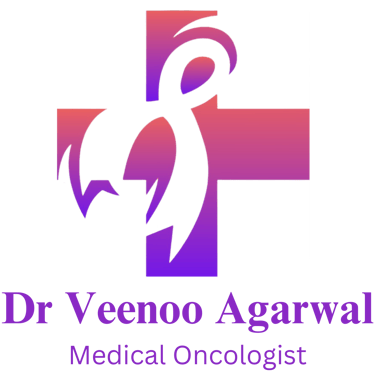
Swallowing the Truth: What You Need to Know About Esophageal Cancer!
Esophageal cancer is a serious health issue that affects many people worldwide, including in rural India. Understanding esophageal cancer, its causes, symptoms, prevention, and treatment options is crucial for early detection and better outcomes. This blog aims to educate the rural population about esophageal cancer in simple terms, highlighting key information to empower them to take charge of their health.
What is Esophageal Cancer?
Esophageal cancer occurs when abnormal cells in the esophagus, the tube that connects the throat to the stomach, grow uncontrollably. The esophagus is responsible for carrying food and liquids from the mouth to the stomach. There are two main types of esophageal cancer:
Adenocarcinoma: This type starts in the gland cells at the bottom of the esophagus and is the most common form of esophageal cancer.
Squamous Cell Carcinoma: This type arises from the flat cells lining the esophagus and is often linked to smoking and alcohol consumption.
Esophageal cancer is known for its aggressive nature, making early detection essential for improving patient outcomes.
Causes of Esophageal Cancer
The exact cause of esophageal cancer is not fully understood, but several risk factors can increase the likelihood of developing the disease. These include:
Chronic Acid Reflux: Conditions like gastroesophageal reflux disease (GERD) can cause stomach acid to flow back into the esophagus, leading to irritation and inflammation over time.
Smoking: Tobacco use is a significant risk factor for esophageal cancer.
Heavy Alcohol Consumption: Drinking large amounts of alcohol can increase the risk of developing esophageal cancer.
Obesity: Being overweight can contribute to the likelihood of developing this cancer.
Diet: A diet low in fruits and vegetables and high in processed foods may increase the risk.
Family History: If someone in your family has had esophageal cancer, your risk may be higher.
Symptoms of Esophageal Cancer
In its early stages, esophageal cancer may not show noticeable symptoms. However, as the disease progresses, some common symptoms to watch for include:
Difficulty swallowing (dysphagia)
Persistent chest pain or discomfort
Unexplained weight loss
Hoarseness or a change in voice
Chronic cough or coughing up blood
A sour taste in the mouth
If you experience any of these symptoms, especially if they persist, it is essential to consult a healthcare provider for proper evaluation.
Diagnosis of Esophageal Cancer
Diagnosing esophageal cancer typically involves several tests, including:
Endoscopy: A procedure where a doctor uses a flexible tube with a camera to examine the esophagus and take tissue samples (biopsy) if necessary.
Imaging Tests: Techniques such as CT scans or MRI can help visualize the esophagus and detect any abnormalities.
Blood Tests: These can check for anemia or other signs that may indicate cancer.
Early diagnosis is crucial, as esophageal cancer is often more treatable in its early stages.
Treatment Options
Treatment for esophageal cancer depends on the stage of the disease and may include:
Surgery: This is often the first line of treatment for early-stage esophageal cancer. The surgeon may remove part of the esophagus or the entire organ, depending on the extent of the cancer.
Chemotherapy: This treatment uses drugs to kill cancer cells and may be used before surgery to shrink tumors or after surgery to eliminate any remaining cancer cells.
Radiation Therapy: High-energy rays are used to target and kill cancer cells. This treatment may be used in combination with chemotherapy.
Targeted Therapy: These drugs specifically target cancer cells and may be used for advanced esophageal cancer.
Prevention of Esophageal Cancer
While not all cases of esophageal cancer can be prevented, there are several lifestyle changes that can help reduce the risk:
Healthy Diet: Eating a balanced diet rich in fruits, vegetables, and whole grains can help maintain a healthy esophagus.
Avoid Tobacco: If you smoke, seek help to quit. Avoiding tobacco can significantly reduce your risk.
Limit Alcohol Consumption: Reducing alcohol intake can lower your risk of esophageal cancer.
Maintain a Healthy Weight: Keeping a healthy weight through diet and exercise can reduce your risk.
Manage Acid Reflux: If you suffer from acid reflux, seek treatment to manage the condition effectively.
Challenges in Rural India
In rural India, awareness about esophageal cancer is low, and many people may not seek medical help until the disease has progressed. Common challenges include:
Limited Access to Healthcare: Many rural areas lack proper healthcare facilities, making it difficult for individuals to get screened or treated.
Cultural Barriers: Stigma and lack of awareness about cancer can prevent people from seeking help.
Financial Constraints: The cost of treatment can be a significant burden for families in rural areas, leading to delayed diagnosis and treatment.
Role of Community Health Workers
Community health workers play a vital role in educating people about esophageal cancer and encouraging them to seek medical help. They can help spread awareness about the importance of regular screenings and provide information on available resources.
Conclusion
Esophageal cancer is a serious health issue, but understanding it can lead to better outcomes. By recognizing the symptoms, knowing the causes, and seeking timely medical help, individuals can improve their chances of early detection and treatment.
